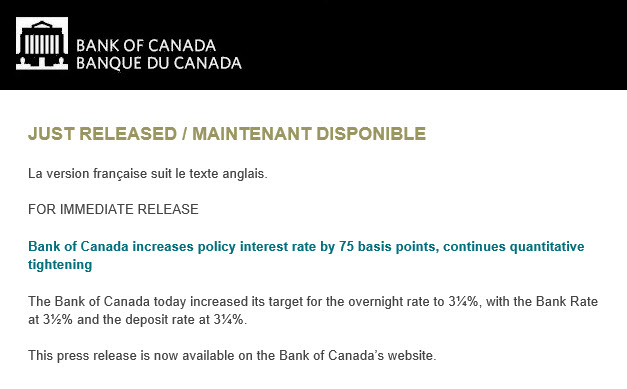Happy New Year! But likely not so happy in the financial world for the next six months or so as it’ll be unlikely that we’ll avoid a recession this year.
While rate increases happened pretty much all of 2022, the impact isn’t usually felt in a big way by consumers for at least six months. And that time is upon us. Actually, it was upon us in November or so, but there isn’t anyone who’s going to turn off their spending tap right before Christmas. There also aren’t many companies who want to be seen as Scrooge in doing big layoffs in December.
January, however, is very different and we’ll see an immediate decrease in consumer spending and a large increase in layoffs. Once person’s spending is another person’s (or companies) income. That creates a spiral effect boosted by inflation and high interest rates that’ll accelerate a slowdown rather quickly.
While 80% of Canadians holding a mortgage have a 5-year term, this year another one-fifth of those are up for renewal. Add that to the one-fifth who renewed at much higher rates last year and 40% of them are now facing the reality of $400 or more in mortgage interest. National Bank estimates that the median amount spent on mortgage costs is 67% of income. The normal ratio anyone uses is around 30% tops and this is an even worse situation than the early 19080s. That doesn’t leave a lot of money for non-essential spending for those who are laid off, had their hours cut back, are in the 40% who’ve had to renew their mortgage or the 20% who had a variable rate mortgage all along. That group of being hit with huge mortgage renewal rates will keep going until 2027. That’s the big advantage the U.S. has where everyone has a 15 or 30-year fixed mortgage…
Oh, and rental rates keep rising as landlords pass on their higher carrying costs, utilities, etc. so you can add most renters to the large group of people who are now barely able to cover their basic living expenses.
That’s assuming we’re not using credit cards to keep up our lifestyle. Since the end of summer, credit card pay rates (the percentage of balances paid each month) has been dropping significantly while auto loan arrears are growing.
So happy New Year is more likely to be an un-happy new year of 2023…

